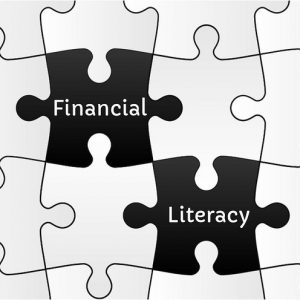When writers hear about a debut author who got a six-figure deal, their curiosity gets piqued. How did that author do it? Did they have industry connections? Get a referral? Did they pitch to their agent at a conference? Did their query letter get picked out of the slush pile?
This month, with the author’s blessing, we offer you a look at the query letter we received from Shelby Van Pelt for her debut, REMARKABLY BRIGHT CREATURES, which Agent Kristin sold recently to Ecco (Harpercollins), in a major, high-six-figure deal after a multi-house auction. NLA’s Literary Associate, Maria, pulled this one out of the slush pile and brought it to Agent Kristin’s attention, and Kristin, immediately sensing a hit, acted fast. We can’t wait for this one to come out next spring!
So here it is…Shelby’s query letter, followed by a little commentary about why this is a query letter that works.
Dear Ms. Nelson,
REMARKABLY BRIGHT CREATURES is upmarket fiction with a dash of whimsy complete at 88,000 words. Told alternately from the perspective of an elderly widow, a fatherless young man, and a giant Pacific octopus, this quirky story will appeal to book club readers who enjoyed Fredrik Backman’s Britt-Marie Was Here and Kevin Wilson’s Nothing to See Here.
Curmudgeonly Marcellus, a “prisoner” at the Sowell Bay Aquarium, wouldn’t lift one of his eight tentacles for his human captors, until he forms an unlikely friendship with the night cleaning lady.
After Tova Sullivan’s husband died two years ago, she talked her way into a job mopping floors at the Aquarium. She doesn’t need the paycheck, but keeping busy has always helped her cope, which she’s been doing since 1987, when her eighteen-year-old son, Erik, mysteriously vanished on a boat in Puget Sound.
Cameron Catalinich recently turned thirty, but he has some growing up to do. He arrives in Sowell Bay on a mission to find the father he’s never known, and he lands a gig helping clean at the Aquarium after Tova breaks her foot. Marcellus, keenly observant, deduces that Cameron is a missing key to what happened that fateful night. As Tova’s injury lingers, with no family to care for her, she makes plans to sell the house her father built and move to a faraway retirement community. Marcellus must use every trick his invertebrate body can muster to unearth the truth for Tova before it’s too late.
I have received full manuscript requests for REMARKABLY BRIGHT CREATURES from acquiring editors at [redacted] and [redacted]. My short fiction has won honors in international competitions and has been featured, most recently, by f(r)iction, Flora Fiction, and Funny Pearls. I currently live in the Chicago suburbs, but I was born and raised in the Seattle area near the fictional town where this story is set. It was inspired by my favorite childhood aquarium.
Thank you for your consideration,
Shelby Van Pelt
Why This Query Worked
First, take a look at that opening sentence. Title + Genre + Word Count. Boom. No awkward small talk. No messing around. Those are the first three things an agent wants to know about your project, and the less searching you make an agent do, the better. Also, 88,000 words is well within the appropriate word-count range for a work of adult upmarket fiction, so we’re definitely going to keep reading.
In the next sentence, we get a brief mention of the three POV characters, which include…an OCTOPUS??? Talk about a hook! At this point, Maria was thinking, “This is either brilliant or bananas.” But with the recent success of the Netflix’s My Octopus Teacher, which since took home the Academy Award for best documentary (one of those uber-fortunate market-timing things no writer can plan for or predict), Maria kept reading.
This second introduction sentence, by the way, also includes two well-chosen comps—comparable titles and authors—that identify an existing readership likely to enjoy this book. This demonstrates the author’s market awareness, and market awareness is vital to any writer’s potential for commercial success.
Overall, that brief opening paragraph packs a succinct punch, including light-touch but vibrant buzzwords like “whimsy,” “quirky,” and “book club,” while avoiding lengthy explanations describing what the book is. Agents are far more interested in what the book is about. So nail that brief intro paragraph and move on to the pitch, like Shelby did.
Shelby’s three-paragraph pitch is structured in a way that mirrors how the book is structured. Each paragraph introduces one of the major characters. In truth, this is an approach I often warn querying writers not to use, because more often than not, we see it done poorly. It’s definitely not done poorly here! What’s the difference? There are three: (a) conflict, (b) connection, and (c) a ticking clock. Here’s what I mean.
What not to do: “Sally is this type of person. Jane is this type of person. Barbara is this type of person. Over the course of the novel, these three women will confront adversity, face hardship, find love, and discover the true meaning of friendship.” Or, in the case of middle-grade or YA lit, here’s another common iteration: “Billy is a nerd who is constantly bullied. Sam is the quarterback of the football team. Jamie is a fairy from the magical land of Eggwaffle. Together, this unlikely trio will have the adventure of a lifetime.”
This formula—“list and give backgrounds on the characters and then make a vague statement or two promising that meaningful or exciting stuff will happen to them”—is one we most often see in query letters for multi-POV novels. The problem is, there’s no room in this formula for a burning story question. A burning story question is the thing that lets know you actually have a story (as opposed to just “characters doing stuff and learning lessons,” which is often not story).
Instead, here’s what Shelby did. For each character, she gave us only what information is relevant to her central, burning story question: What really happened to Erik? She does that by hinting at how these characters are connected to each other even though they don’t know they are connected to each other—and we are compelled to read the manuscript because we want to find out how they find out they are connected to each other. That in itself is a second, “meta” burning story question that’s communicated through the pitch’s subtext, and it lets us know the novel has layers that promise an emotionally satisfying journey. Finally, Shelby also sets a ticking clock: Marcellus has to communicate with Tova before she moves away and it’s too late. Ticking clocks are great ways to give stories tension, urgency, and stakes.
A well-crafted pitch is built on meaningful subtext. Don’t waste space in your query letter telling us you have a burning story question, and don’t tell us what it is. It should be made clear within the pitch itself. Don’t waste space telling us your novel has layers that promise an emotionally satisfying journey. That, too, should be conveyed by the pitch’s subtext. Don’t tell us your characters are connected in ways they will understand only at the end of the novel (yep—use subtext instead). None of those things tell us what the story is about. Keep the pitch focused on how your character(s) is(are) connected to a burning story question, and you’ll be headed in the right direction.
Finally, Shelby’s bio in the query letter’s final paragraph is brief and relevant. It lets us know she’s had editorial interest, which is important. (You wouldn’t BELIEVE how many writers I’ve had in my query workshops over the years who omit this type of thing—or other boosts or accolades—from their query letters because they’re worried it’s bragging. It’s not bragging! Step up to the mic! Give us the goods!) She lists a few prior publications, and then sums up with a personal note.
That’s about as close to perfect as you can get.






